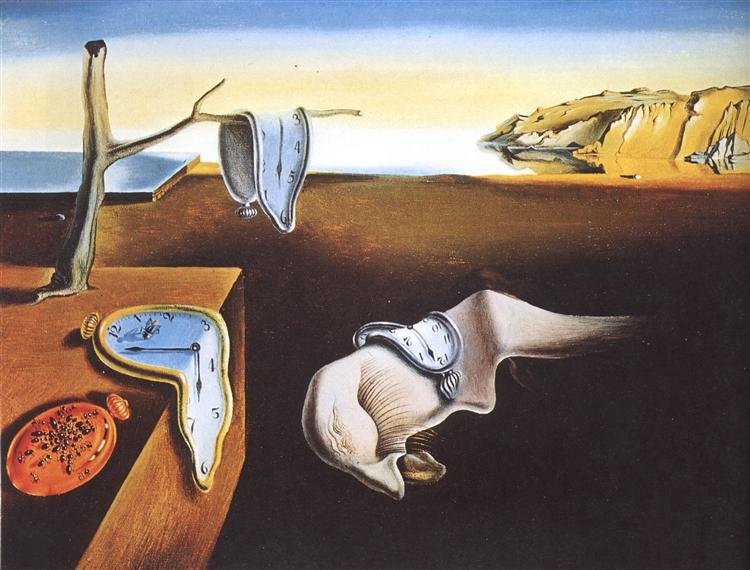Does Time Exist?
Does time exist? One question from my recent reading endeavor The Sound and the Fury stayed with me as I went through my day. In this book, a (relatively unhinged) character named Quentin has a consuming obsession with time and the watch his father gave him. He says, “Because father says clocks slay time. He said time is dead as long as it is being clicked off by little wheels; only when the clock stops does time come to life.” This idea of the time being “clicked off” resonated with me, as I had allotted exactly 30 minutes to read for leisure before I had to start my next task. At Penn, all the time in a day seems to be infinitely divided up in a way that kills our experience of life and time itself. This led me down a rabbit hole of asking, is time even real at all?
After a quick online search, I realized that the topic of time is far more complicated than I thought and certainly more complex than I can explain in this short post, so I will attempt to explain only two contrasting understandings of time instead of trying to go into all the different theories.
The first idea of time is that it flows and is dynamic. This perspective is compatible with presentism, which is the idea that neither the future or past exists, but rather only the temporal present moment. In this conception, time is not another dimension; only the present 3-dimensional world exists and time moves through it. The idea of dynamic time is also compatible with the thermodynamics concept of the “arrow of time.” According to the second law of thermodynamics, the disorder/ entropy of the universe is always increasing. This law lends itself to an understanding that time has a directionality and flows towards a more entropic/disordered state. This theory of the arrow of time explains why processes are not reversible, and fits into the way we typically envision time, as moving forward. This idea of time passing and moving forwards is fundamental to the way our society is structured and the way we typically think about our life.
The second idea of time is that it is static and exists as another dimension, like space; this would mean that the passage of time is not a true phenomenon and that there is no directionality in the way time exists. This idea is compatible with eternalism, which argues that all points of time, past or present, are equally real. In this conception there isn’t a direction that time moves, because it is an unmoving, dimension-like space. Thus, the sense of time passing is an illusion of the mind and a limit of the human experience. This theory of static time is also compatible with Einstein’s theory of general relativity. This theory states that time is like a fourth dimension that is interwoven in a space-time fabric. The theory claims that this space-time fabric can be distorted by objects with a large mass, and that this distortion causes what we observe to be gravity. The idea of time-space distortions is also connected to the idea of time dilation, which is the observation that time is experienced differently when moving at different speeds. The theory that objects moving at a higher speed will experience time more slowly is well supported by experiments done with atomic clocks and high speed jets. This phenomenon of time dilation suggests that the experience of time is completely subjective and based on one’s speed and location in the gravitational field. It suggests that there is no speed that time moves at, but rather that it is experienced differently in different places. Theories of a static space-time dimension state that the past, present, and future are all equally real even though we may perceive the present as more real. This theory claims that our perception of time isn’t real. The passing of time is not real. Our measurements of time are not real, but rather subjective.
These theories are only the tip of the iceberg of metaphysical time. On a personal level, I don’t know which way is a better way to conceptualize time, but the idea that the way in which we organize our day is arbitrary very much resonates with me. In times when I don’t have much to do, time seems to pass differently. For instance, over breaks I try to disconnect more and often don’t keep track of the time, making my days feel much longer and more vibrant. In their song “Time,” Pink Floyd expresses the anxieties of trying to capture time and how the habit of “ticking away the moments that make up a dull day” destroys our ability to experience time. Some people are inspired from this to live in the moment or seize the day, but personally I resonate more with the hope expressed by Quentin’s father in The Sound and the Fury, who says, “I give it to you not that you may remember time, but that you might forget it now and then for a moment and not spend all your breath trying to conquer it.”
Citations:
Emery, Nina, Ned Markosian, and Meghan Sullivan, "Time", The Stanford Encyclopedia of Philosophy (Winter 2020 Edition), Edward N. Zalta (ed.), URL = <https://plato.stanford.edu/archives/win2020/entries/time/>.’
Markowitz, William , Smart, John Jamieson Carswell and Toynbee, Arnold Joseph. "time". Encyclopedia Britannica, 29 Oct. 2023, https://www.britannica.com/science/time. Accessed 6 November 2023.Markowitz, William , Smart, John Jamieson Carswell and Toynbee, Arnold Joseph. "time". Encyclopedia Britannica, 29 Oct. 2023, https://www.britannica.com/science/time. Accessed 6 November 2023.
The Sound and The Fury - William Faulkner
